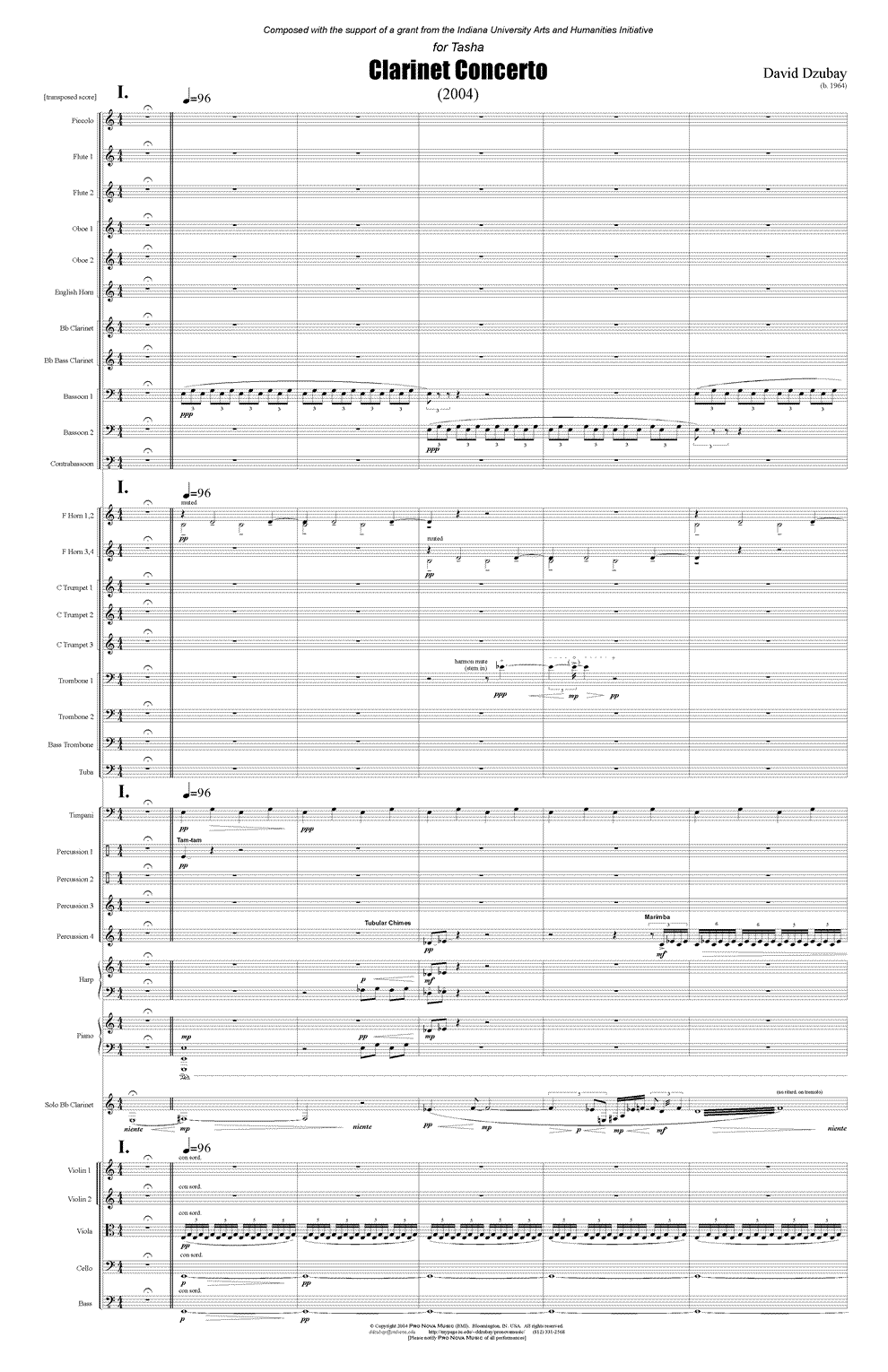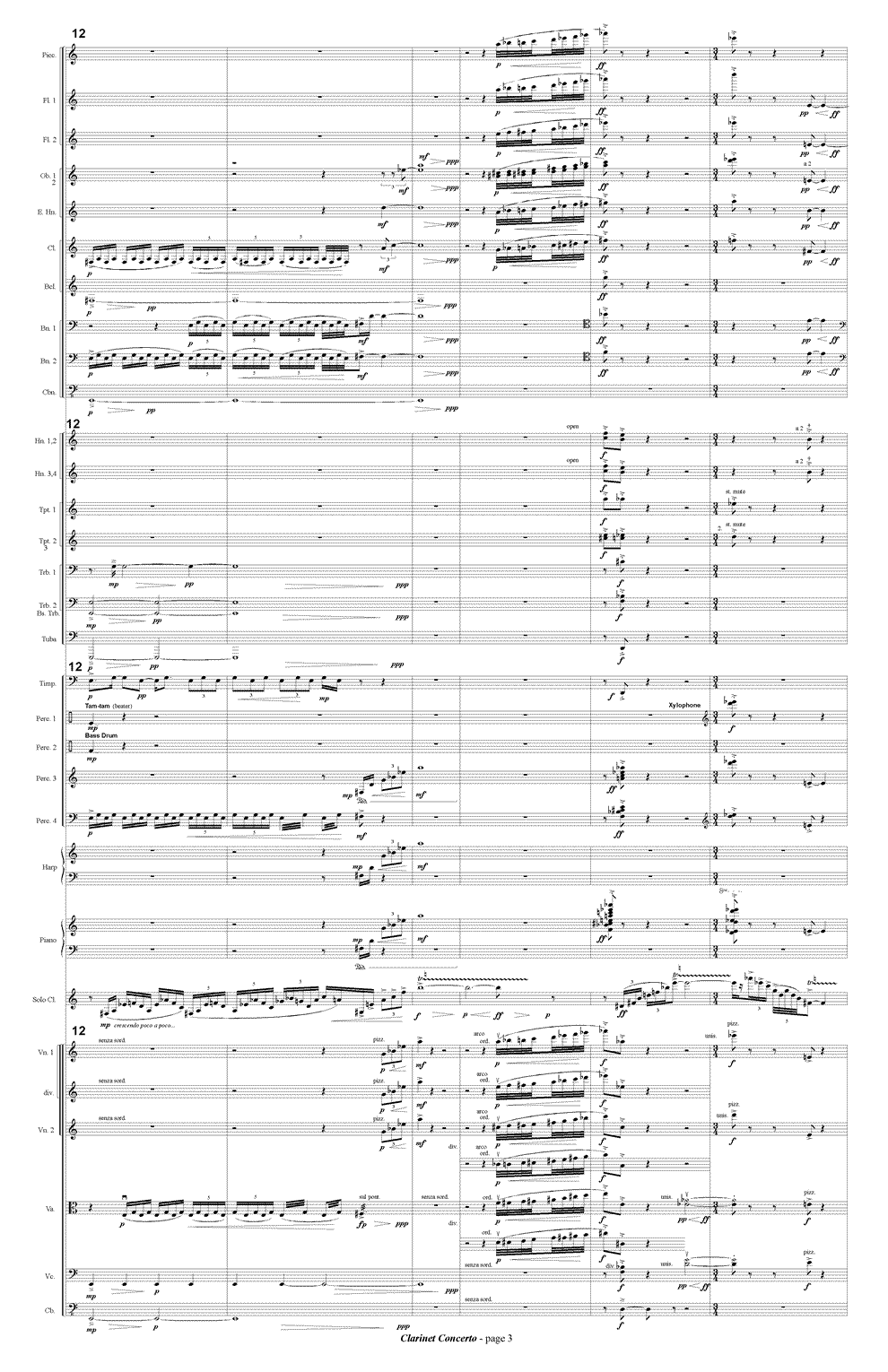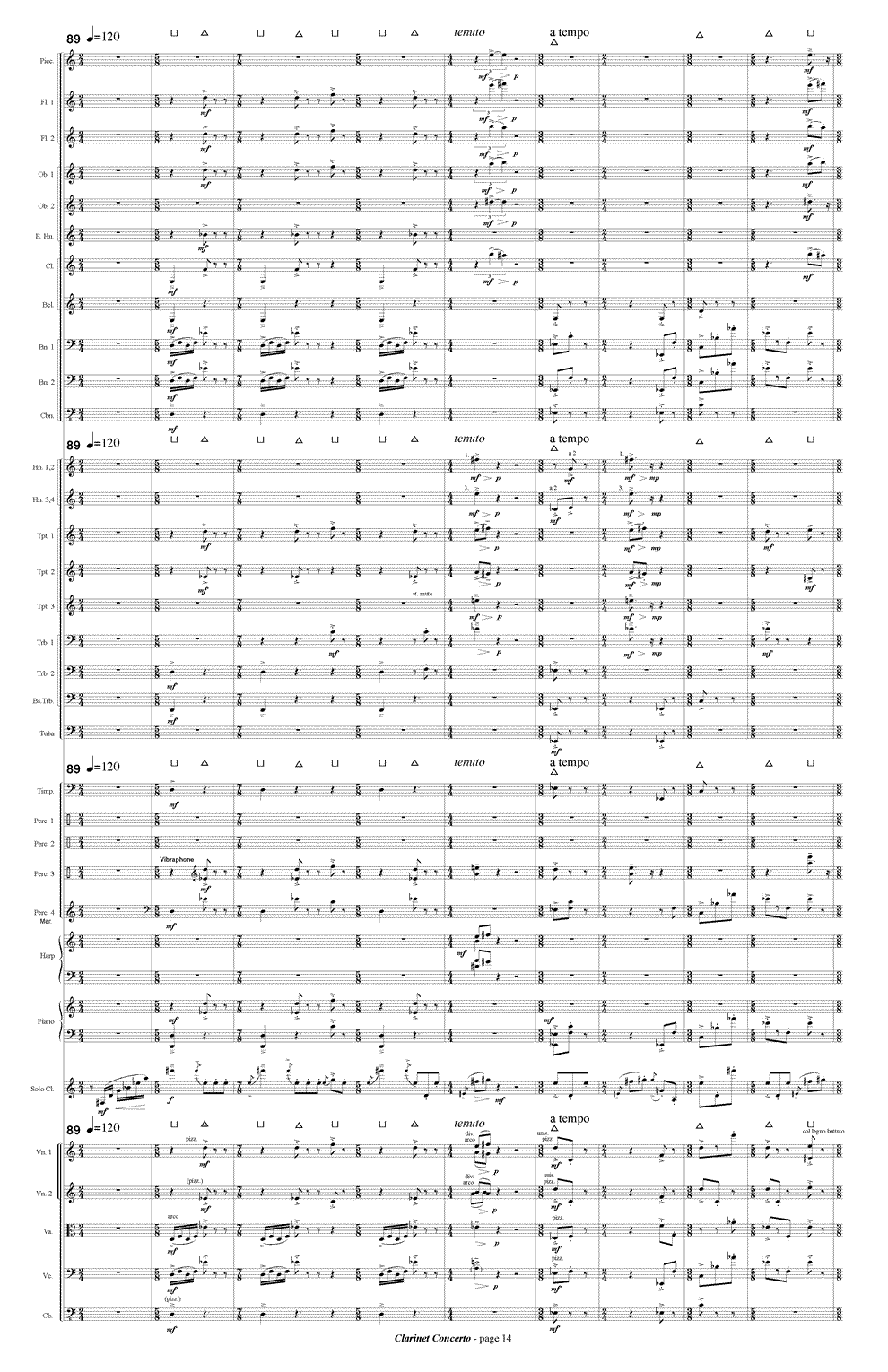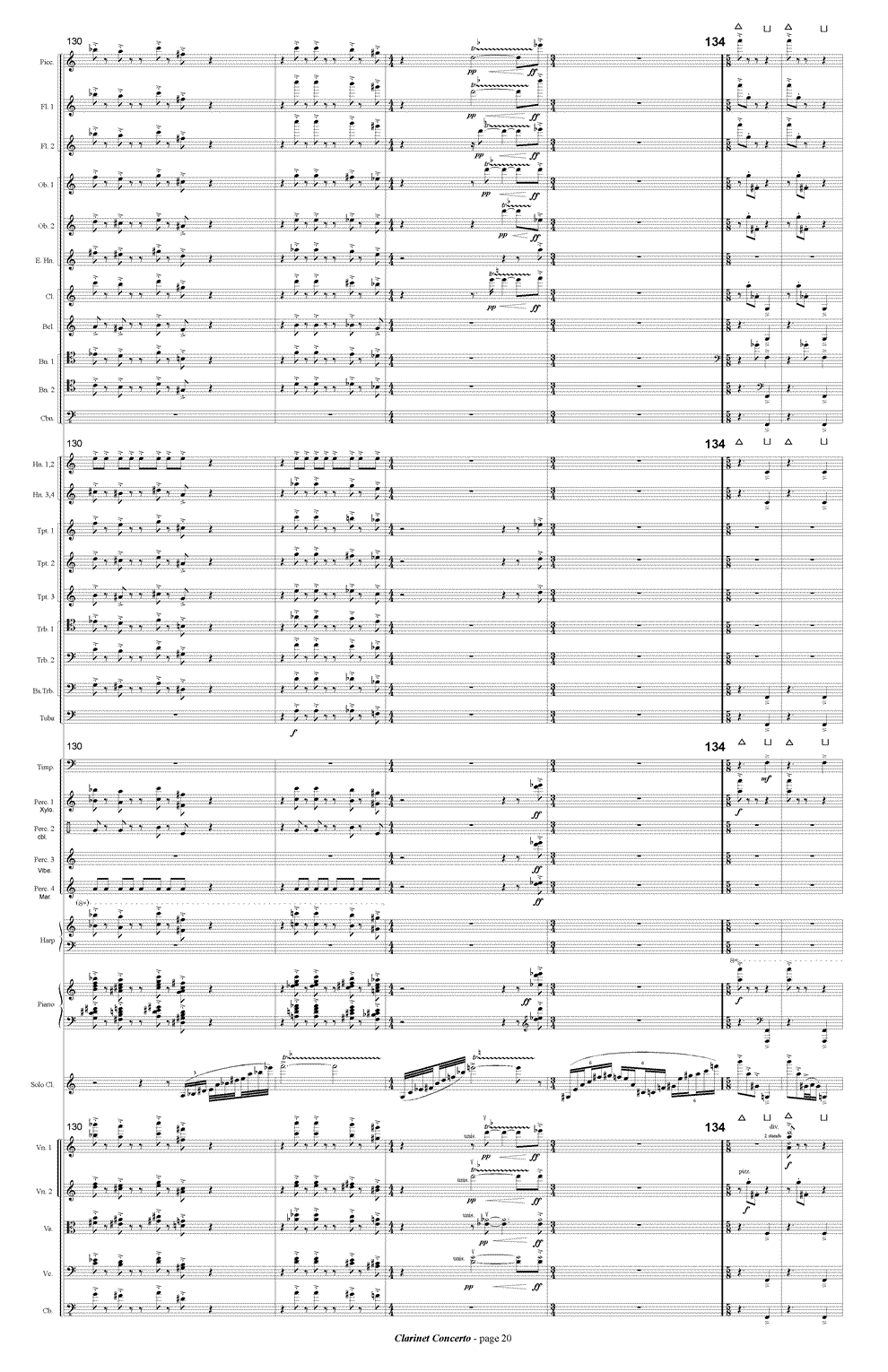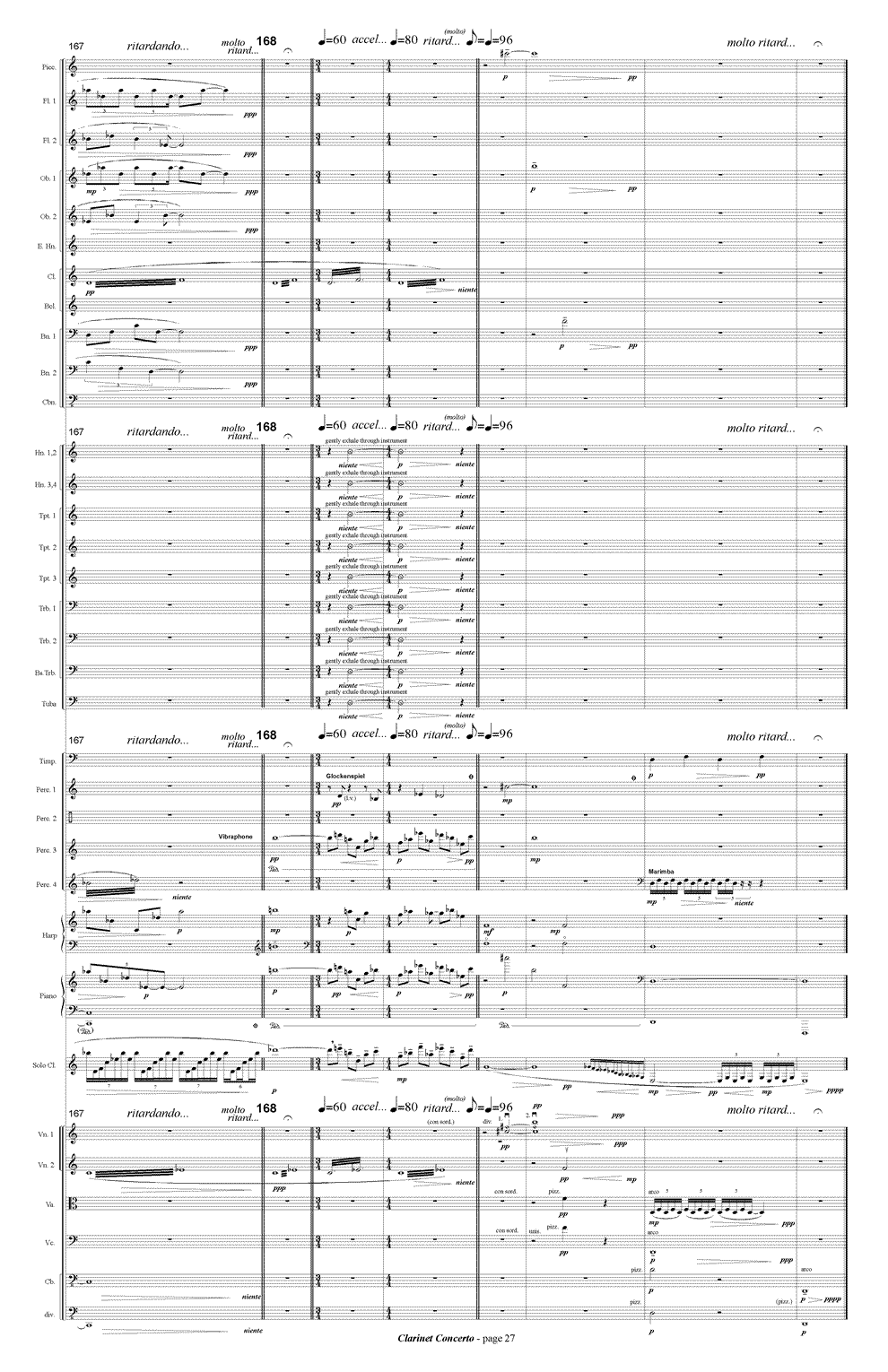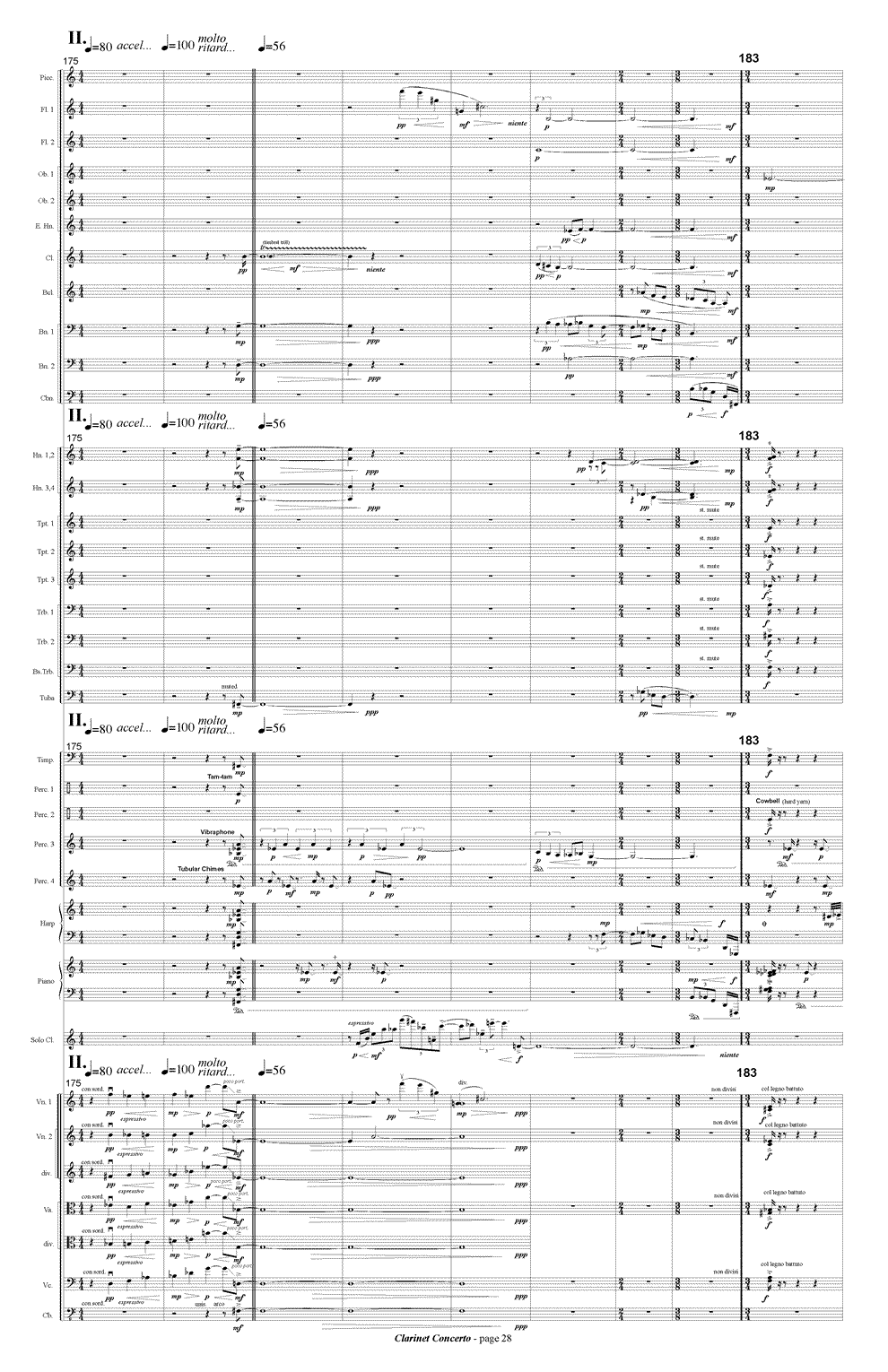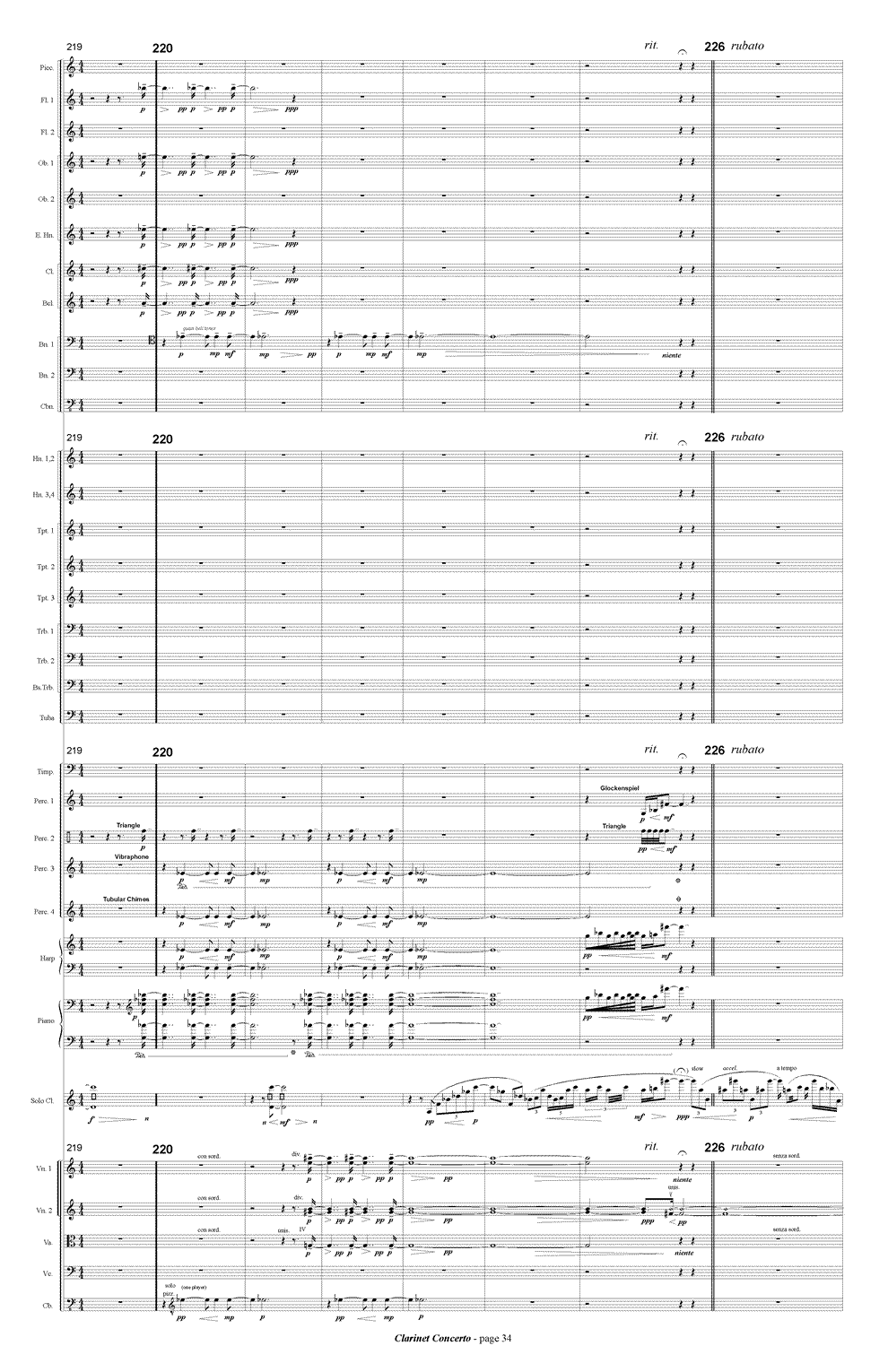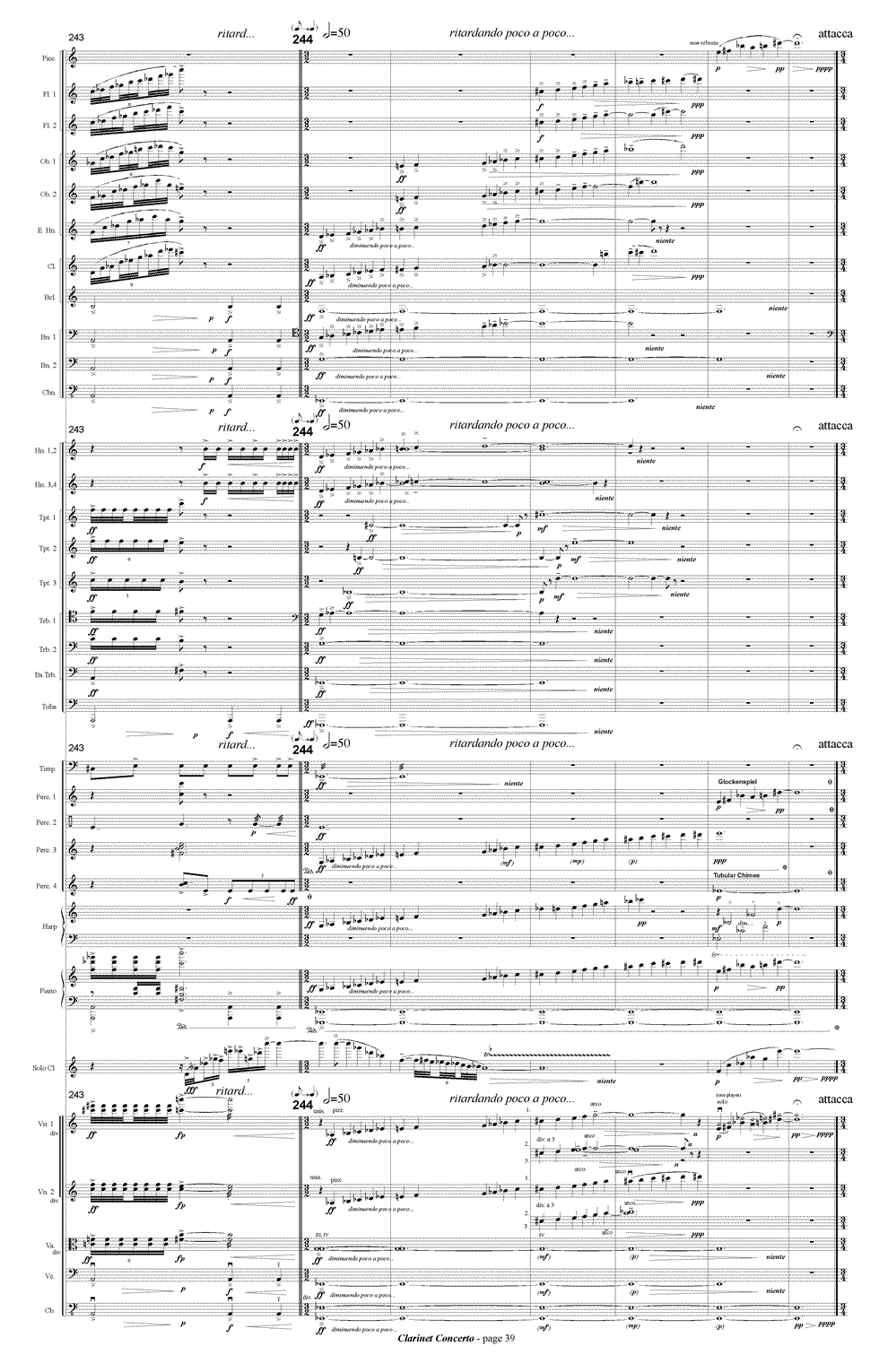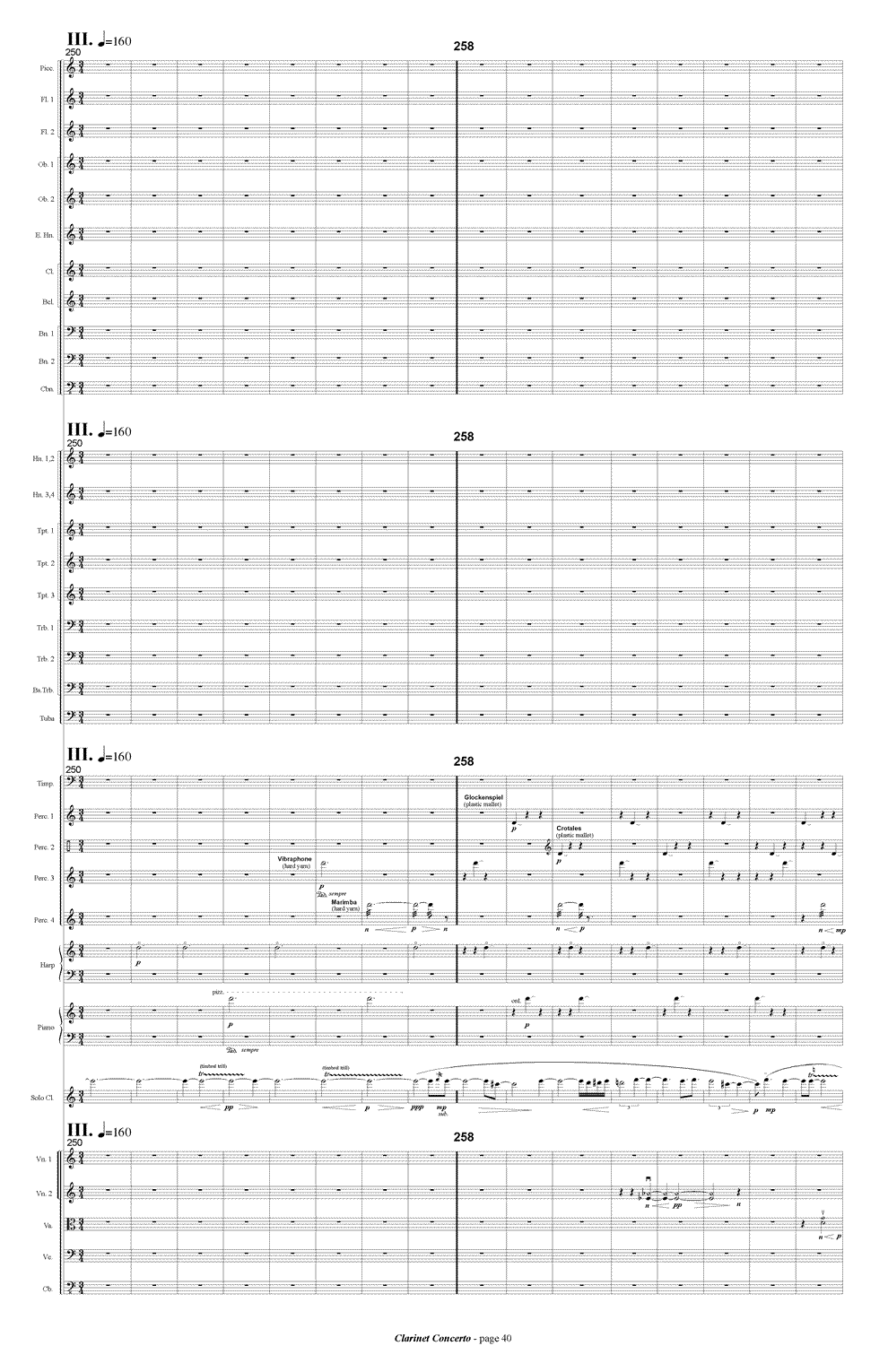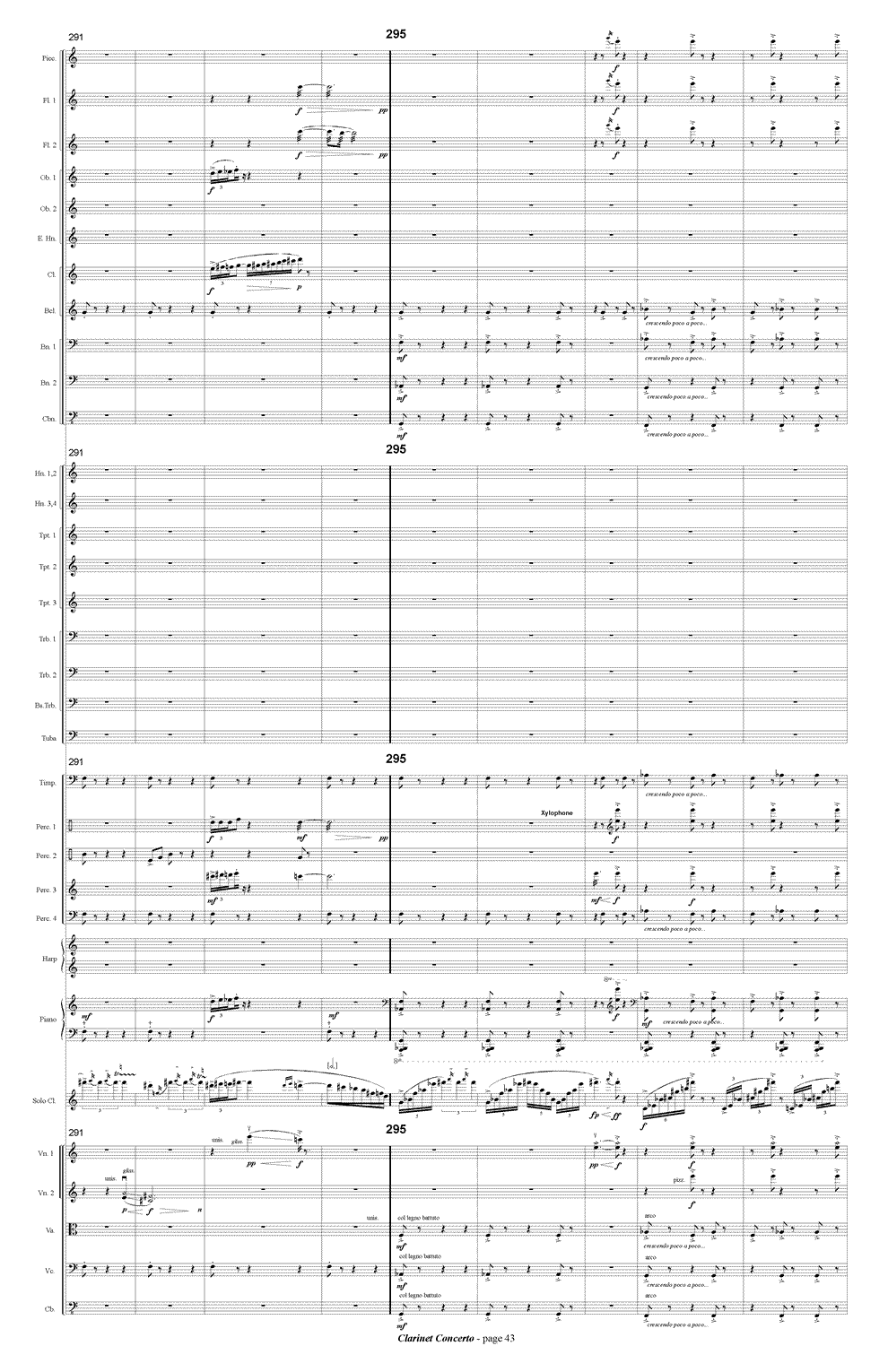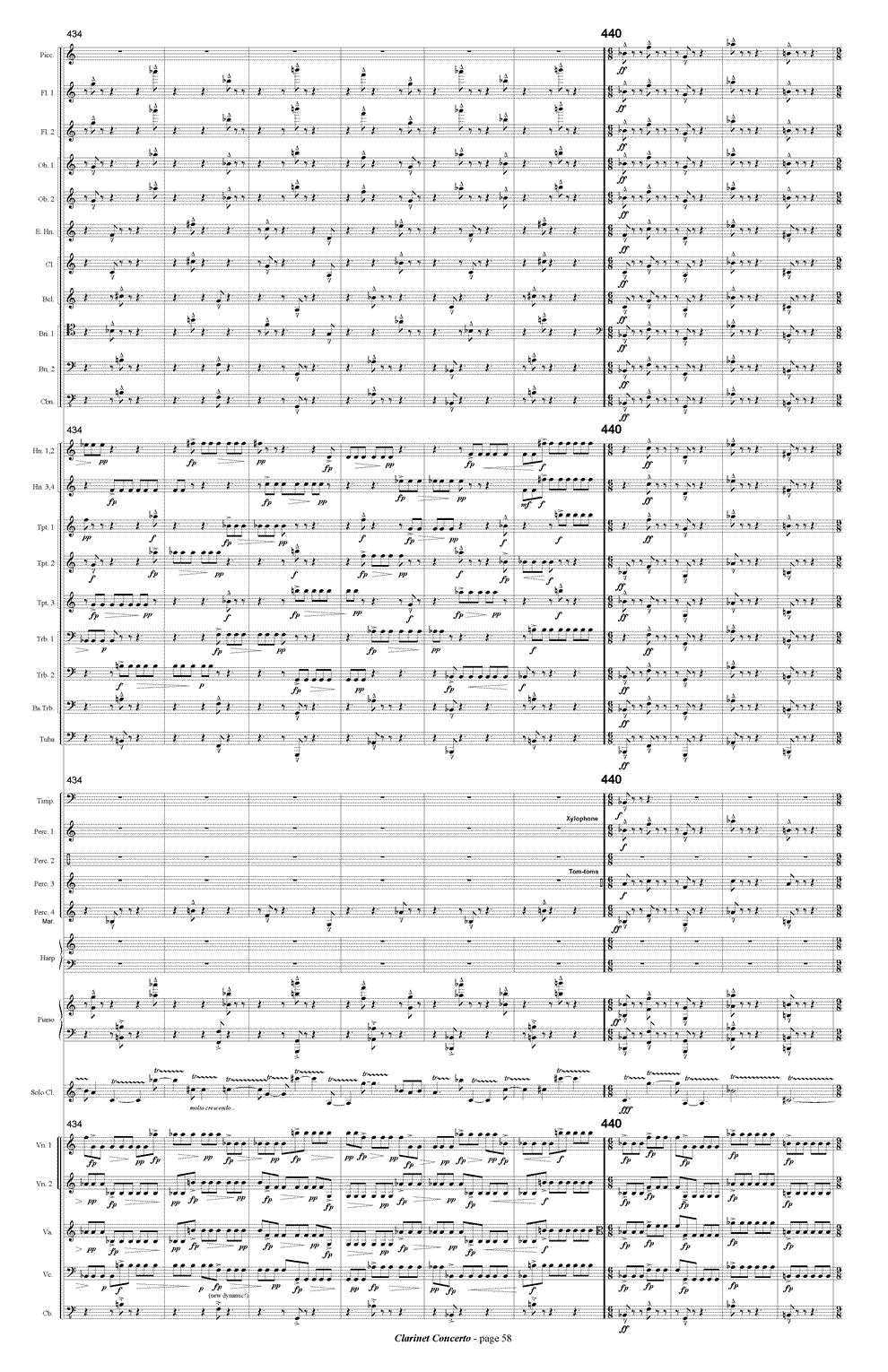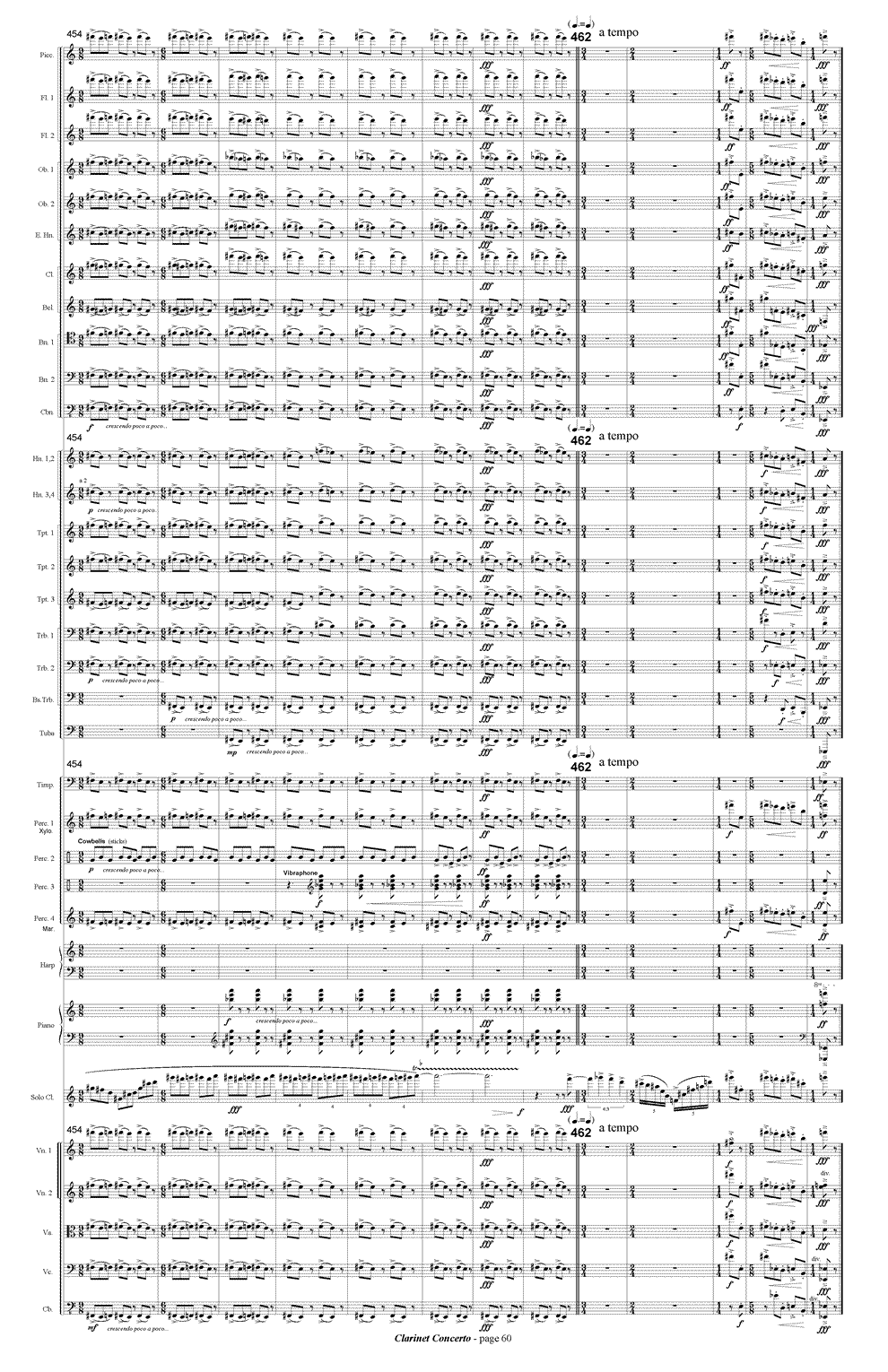Clarinet Concerto
(2004) for orchestra
- Present
- Past
- Future
instrumentation: solo clarinet, 3(3=picc.).3(3=Ehn).2(2=Bcl).3(3=cbn)/4331/timp.4perc.hp.cel.pno/strings
duration: 16 minutes
premiere: Indiana University Philharmonic, Dec. 6, 2005. James Campbell (clarinet), David Dzubay (conductor)
Slovak Radio Symphony Orchestra, Tasha Warren (cl), Kirk Trevor (cond.) (arrowheads navigate tracks):
I.
II.
III.
(live) IU Philharmonic, James Campbell (cl), David Dzubay (cond.)
(arrowheads navigate tracks):
I.
II.
III.
Perusal Score & Part
Recording
 Innova 634 American Midlife
Innova 634 American Midlife
Slovak Radio Symphony Orchestra, David Dzubay (cond.), Tasha Warren (clarinet)
Program Note
This concerto was composed with the support of a grant from the Indiana University Arts and Humanities Initiative.
Though ours is a relatively young country, just over 200 years old, one can easily imagine witnessing current signs of an American midlife crisis. With a populace so divided about everything from social and economic issues to national security, I wonder where we are headed. It seems we are at a crossroads, making critical decisions about the future of our society . We have enough history to provoke thoughtful reflection on past decisions, current states of affairs and future possibilities. I hope we will make “good choices” in the coming years.
In American Midlife, the first movement, “Present,” reflects a variety of moods, with abrupt changes of contrasting character, tempo, dynamics, and orchestration. The slow introduction presents musical ideas used in all three movements; even within this brief slow section the music is being pulled in different directions, trying to decide which way to go. When the fast music begins, the soloist’s ‘perspective’ is reduced to a simple minor third, as if consciously putting aside the competing ideas for the moment. From here on, through three central sections with a couple transitions, the soloist’s melodic line becomes more and more elaborate and perhaps increasingly frantic as well, eventually bouncing around in all registers. At the climax of the movement, the tempo steps back, and the soloist is gradually overcome by the orchestra. The movement is rounded off by a quiet return to the minor third.
The second movement, “Past,” is largely one of contemplation, containing a great deal of rather tender music that also seems to be in search of something. Contrasting these moods are some dramatic outbursts – anger, frustration, realization? This movement again rounds off to a quiet end, leading without pause to the third movement, “Future.”
The final movement is fast, mercurial, industrious, and even optimistic. The soloist’s material is more confident, using the minor third again, but now in a determined way, leading rather than reacting to the orchestra. The perfect fifth, used a bit in the first movement is featured even more prominently here, notably in a long flurry of fifths by the soloist shortly before the conclusion. Perhaps the emphasis on that ‘perfect’ interval reflects my hope for the future, both of the individual and society.
Review
Written in a lyrical, lavishly orchestrated, 20th-century style, the work enchanted listeners from the very first note. ...American Midlife [Clarinet Concerto] affords many opportunities for expressive cantabile in well-structured phrases, explores the instrument's capabilities with a judicious use of multi-phonics, and plenty of fast, technically challenging passages for the virtuoso within us all. The soloist is often doubled by instruments from the orchestra, creating a pleasing "floating" sensation. Dzubay's piece is great and a welcome and significant contribution to the clarinet repertoire. James Campbell...lived up to his reputation, captivating everyone with a truly artistic interpretation, always supported by his solid technique, which made the difficult passages sound easy. With the help of excellent conducting by Mr. Dzubay, the I.U. Philharmonic Orchestra provided a polished accompaniment, with both an attractive orchestral sound and the precision required for this piece. |
Luis Rossi [The Clarinet] |


